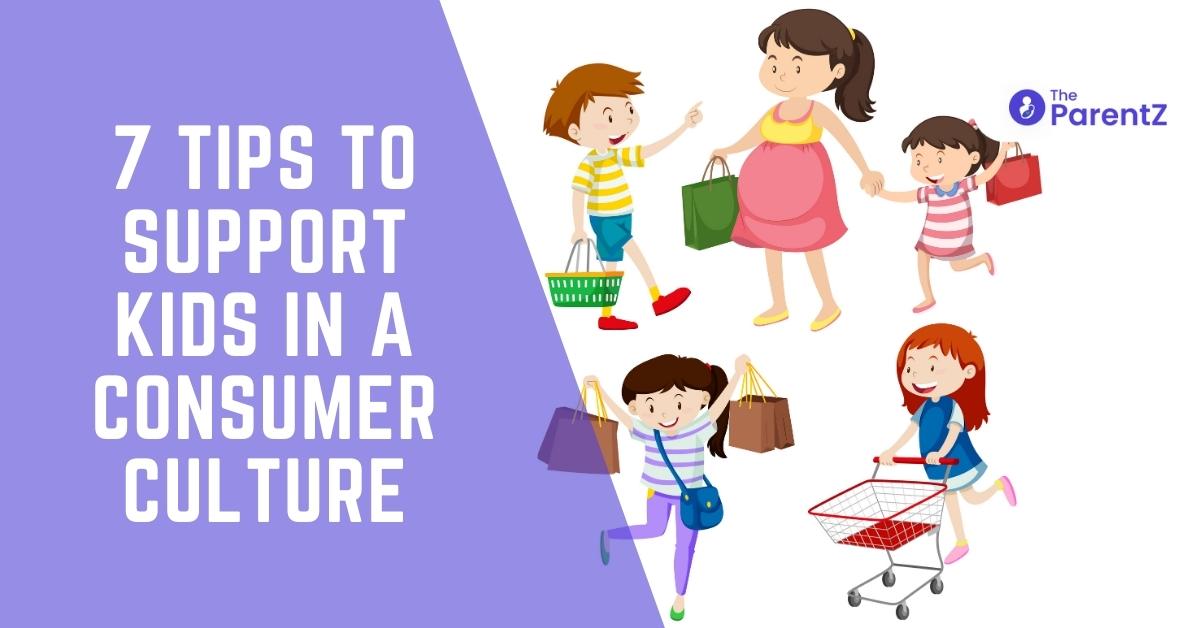“In a UK study of 1,000 children aged 8-14 over three years, being disruptive, having ‘cool stuff’ and looking good was often seen as the best way to become more popular among peers.” University of Sussex Study, 2015.
While we all want is best for our children, parents often find themselves navigating a delicate balance between what our kids want and what they need. While our kids pull on our heartstrings for a new toy, carefully designed advertisements and media bombard them with messages of how this new toy will make them happy. Obviously, we are susceptible to these messages too. For our kids, it can be a new Xbox or a pair of shoes, and for us, it can be a new car or big screen tv.
The problem is our brains are wired for these kinds of media and advertising messages. It’s easy for everyone, especially for young kids, to unknowingly replace self-consciousness, anxiety, and instability, for example, with the promise that a new shiny thing will bring them happiness. It’s extra difficult for all of us when other families and friends have those same shiny things. Kids will often equate material possessions, looking cool, or even be disruptive at home or school as a solution to not fitting in, having negative self-feelings about themselves, or in my experience, loneliness.
When I was a senior in high school, I begged my mom to buy me a new suit for graduation. I was a lonely young man who didn’t have many close friends. Today I can look back on my childhood and early twenties and still feel the envy I had for what others had. With time and stability, I realized I didn’t know how to understand and process these feelings. Instead, I begged mom for a new suit, and later, accrued my share of credit card debt, trying to buy my way to happiness.
This quote I recently read in a blog makes a lot of sense to me, “Acquiescing to materialistic demands is like trying to destroy a tree by hacking at the leaves. While we ignore the root, the tree will keep growing, and the challenges in our children’s lives will continue to appear.” One of our best defenses when it comes to raising our children in today’s culture is to support them by getting to the root of the issue that is causing them to obsess, for example, on a new pair of shoes. My hope is the following tips will help you establish with your children that long term happiness doesn’t happen by getting “stuff,” but by being a caring and empathetic friend to those around you. My goal is to also help you recognize when their behavior is covering up a deeper issue than just wanting a new pair of shoes. This is the missing piece of information that parents need when raising and supporting their children in a materialistic and consumerist culture.
Tips for Raising Kids in a Materialistic and Consumerist Culture
Tip #1 Show Your Kids How Caring and Giving Make Us the Most Happy
“Happiness mainly comes from our own attitude, rather than from external factors.” Dalai Lama.
I want to stress the word “most” in Tip #1 in relation to the Dalai Lama quote. When my brother and I finally had our own Atari 2600, a gaming platform popular in the 1970s and 80s, we were really, really happy! Having cool clothes, being popular in school, having what you need is, actually, pretty great. It’s hard to come at kids with this idea when every fiber of their being tells them everything would be so much better if, for example, they had more friends…or an Atari 2600.
Of course, the problem, and this can be demonstrated scientifically, is that people are more or most happy when connected to their community. When people express friendship, compassion, empathy, and support for their friends and others, there is long-lasting happiness. In the case of that Atari 2600, our sense of joy diminished within a couple of years and was completely gone when the Nintendo 64, a new gaming platform, was released.
Tip #2 Start Planting and Nurturing Those Seeds Early
At three years old, children begin to understand everyone has feelings. It’s at this age they start to have a sense of empathy and charity. It will take some time before our kids can fully realize and appreciate the different shades of happiness described in Tip #1.
So, we plant seeds. We introduce the concept of happiness related to friendship and caring and return to it often. The idea is that when their fragile sense of happiness is shattered because you didn’t buy them those new shoes, they can start to put it in the proper perspective. This helps us in the future to distinguish a genuine interest in something new from a more significant issue that has little to do with getting a new item.
Here are a few seeds you can plant early:
Volunteer at an Orphanage, Charity Organization or NGO
We moved to New Delhi when my daughter was three. Soon after we arrived, we had our first experience with young and old, men, women, and children, tapping on our windows at traffic stops asking for food or money. You can imagine our anxiety about what to do and the questions from our daughter. We haven’t shied away from explaining some people don’t have homes, enough food to eat, or money for toys and trips. Like planting seeds, our daughter’s understanding and gratitude now close to six years old continues to develop and grow. Our next logical step is to volunteer at an orphanage, charity, or NGO to further help her understand what she has compared to others.
Birthday-Holiday Money
Start a tradition in your family that when anyone in the family is given money for a birthday or holiday gift, to divide the money between spending, savings, and charity. Whoever is receiving the money chooses which cause or organization the money is to be given to. I also suggest you participate too so your children can see you go through the process. This would be a significant next step once your child starts to identify the causes and organizations she cares about. A new family tradition.
Questions to Ask Your Kid
I really like this tip. Our daughter asks us for new stuff all the time. Create a standard set of questions to help them understand the difference between what they need and want:
- Do you really need it?
- What do you need it for?
- How would your life be if you didn’t have it?
- How will your life be terrible if you don’t get it?
- What about the toys and gadgets in your closet?
- This money could be spent on clothes or food, right?
As your child grows up, the questions will inevitably change. Again, part of the point is to help them think through what is necessary and what is not, an important lesson they will need as adults. The other part of this point is to help you establish a history of talking about consumption so you can identify when there’s a more significant issue than the kid just wanting something new.
Tip #3 We Don’t Have to Be Perfect, but We Must Set the Example
If I just had the new MacBook Pro, I would get so much work done! Four years ago, before moving to India, I convinced myself I need a new Xbox because– I don’t know, we’d be home more? Now three years later, my old laptop is still working fine, and as for the Xbox– I did buy it and I barely play any games at all. We basically use it to move between YouTube, Netflix, and renting movies.
Like most any parenting strategies, our kids are always watching, mimicking, and learning from us. If we are obsessed with the newest gadget, chances are, they will be too. The only way our children are going to learn how it feels to give money or time to a cause or organization is if they see us do it too.
Set the example, find a cause, organization, or event you think you and the family will enjoy. Maybe it’s once, twice, three times a year that you volunteer together as a family. Spend some time before the event sharing why this event is important to you. Afterward, everyone shares what they learned, what touched them. Ask for ideas and suggestions from the kids about what the family does again in a few months.
Tip #4 We Can Only Understand if We Listen
To discern if there is a more significant issue, we must listen to our kids carefully. In my example, with wanting a new suit for graduation, when I think back, I was so lonely. I somehow equated not having things like new clothes or a cool car as the reason why I didn’t have friends or much of a social life. I equated a new suit from Chess King, a popular hip store in the 80s and 90s, as the “thing” that could fix what was wrong with me. Asking and begging mom for a new suit was my cry for help that no one really understood, especially me. I think back now and realize that if there had been someone to talk to about these issues, I might not have needed that new suit after all.
Tip #5 Sometimes It’s Just About the Atari
While some wishes and desires are more about a child’s negative feelings about themself, other times a wish is really just a wish. We have to handle these experiences on a case by case basis and make purchasing decisions as parents that are aligned with our own family’s values. My best advice is to look for patterns. What are the things your child is asking for? Can you make a connection between what they are asking for and a potential, more significant issue?
Tip #6 Take Your Time, Delay and Discuss
We just can’t say no. Nor can we just say yes to stop the begging. We need time to listen and understand what precisely they are asking for, a new pair of shoes, or a listening ear. If possible, work out a compromise. For example, the item could be a Diwali or birthday present. Or if they can earn all of part of the cost, then yes. The way I understand this situation is that we want them to learn how the value of things actually measures up to happiness. We are also wanting them to learn about the value of money. And we are also wanting to know if their requests are signs of a deeper problem.
Tip #7 Look for Opportunities to Problem Solve Together
Sometimes talking it through isn’t enough. They can’t shake the connection between having something new or cool with the more significant issue of not fitting in, feeling depressed, or not having the means that friends have. Sometimes all we can do is listen, and from my experience, that’s a lot better than not having a dialogue. It’s difficult to not give in nor reject their request. Try to find a third option. Problem-solve together and let them help you come up with solutions that are acceptable to both of you.
Living in the Material World
“Although friendly and helpful children were ultimately more popular over time, young people mistakenly predicted that the route to being liked was in having a reputation for disruptive behavior, having ‘cool’ stuff and looking good.” University of Sussex Study, 2015.
Our first challenge, even if it’s a challenge for us to understand, is that “keeping up with Joneses,” is not the key to happiness. The University of Sussex study actually warns both parents and kids that “Consumer culture may be perceived as a coping mechanism by vulnerable children, but it is one that is detrimental to their well-being.” We should start teaching these lessons early, and maybe the best piece of advice is to practice what we want the kids to learn. Too often, these discussions about our materialistic culture don’t include how these desires and needs can mask more essential issues like fitting in, being bullied, even depression. It’s up to us parents to differentiate between what is simply a legitimate want, and that’s part of a more significant issue. How do we get there? By staying open to discussion. Looking for ways to problem-solve together. Not taking a hard stance of “no” before finding out what is ultimately going on.
If you have ideas, examples, or resources you’ve used, please share in the comments below.





Be the first one to comment on this story.